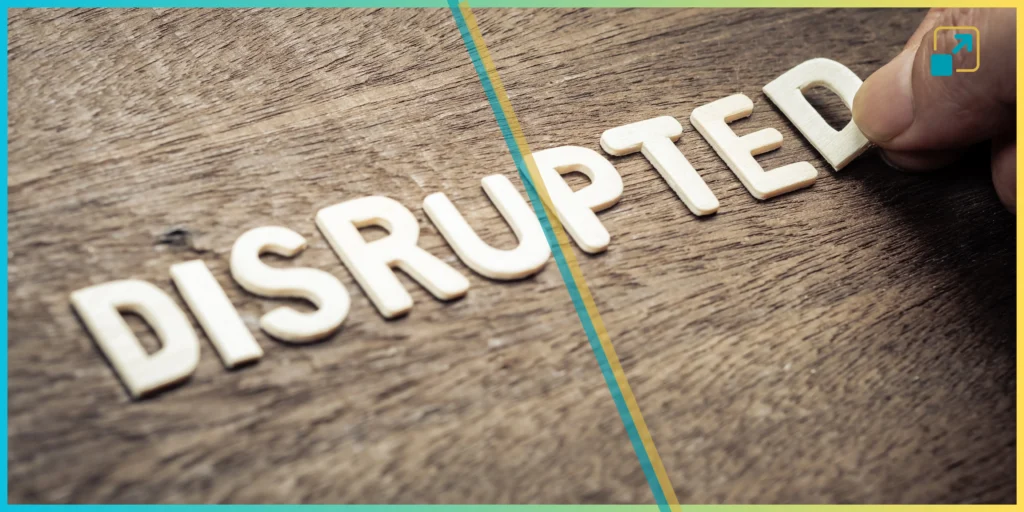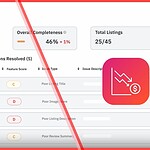When Infrastructure Fails, Everything Stops
On April 28, 2025, a sudden infrastructure collapse swept across Spain and Portugal. Power grids, public transportation, telecoms, and internet services simultaneously went dark in major cities—including Lisbon, Madrid, Barcelona, and Porto.
For many short-term rental (STR) managers, this might seem like an isolated incident—an unpredictable, localized failure. Yet, such disruptions are increasingly common globally. Whether it’s hurricanes in Florida, wildfires in Hawaii, earthquakes in Turkey, or unexpected blackouts in Europe, infrastructure fragility has become a universal operational risk.
In regions like Florida and the Caribbean, disaster preparedness isn’t optional—it’s routine or even mandated. Even if you don’t face hurricanes or earthquakes, every STR business should prepare proactively. This isn’t just good crisis management—it’s a mark of professionalism and quality.
Why This Matters—Even If You’ve Never Faced a Blackout
You’re not in Lisbon. You haven’t experienced a complete grid failure or telecom collapse. So why should this matter?
Because operational resilience is crucial everywhere. The more advanced your STR operation—with smart locks, PMS integrations, and automated guest communication—the more dependent you become on external systems. This story helps you audit your vulnerabilities before circumstances force you to.
Preparedness Signals Professionalism
Risk readiness isn’t just damage control; it communicates reliability to guests, owners, and your team.
Redundancy Builds Resilience
Small steps like power backups and printed instructions make a big difference when digital infrastructure collapses.
Guests Travel With Risk in Mind
Guests from regions prone to disruptions already anticipate these issues. How you respond shapes their experience and your reputation.
Being Proactive Sets You Apart
Most STR managers react only after disruptions occur. Incorporating resilience into your SOPs provides a competitive advantage.
What Happened Across the Iberian Peninsula
When the blackout struck, chaos quickly followed:
- Public transport froze: Subways, trams, and trains halted.
- Telecoms vanished: Cell towers and Wi-Fi went dark.
- Payments stopped: Card readers and ATMs failed.
- Safety systems broke down: Elevators stalled; emergency responders were overwhelmed.
In Madrid alone, emergency responders handled over 170 elevator rescues. Airports closed, and train stations became temporary shelters. In buildings dependent on electric pumps, even water became unavailable.
Short-term rental operators faced a complete operational freeze—no check-ins, no automated messages, and no platform access. Guests were stranded without clear guidance.
A Firsthand Look at What Fails—and Why
Living in Lisbon among numerous vacation rentals, I witnessed guests outside buildings, helplessly scrolling frozen phones and unsuccessfully attempting to contact disconnected hosts. The silence—no Wi-Fi, no signal—highlighted an unintentional yet revealing test of our industry’s vulnerability.
That inspired this piece: to emphasize that even the most sophisticated systems can fail due to fragile infrastructure.
Infrastructure Is Fragile—Everywhere
Infrastructure stability is often assumed, but modern systems are brittle and interdependent. Consider potential disruptions:
- Grid overloads or regional power rationing
- Extreme weather (storms, floods, heatwaves)
- Cyberattacks disabling telecoms or utilities
- Aging infrastructure or maintenance failures
- Strikes impacting essential services
These events sever invisible threads keeping your operations smooth: access, communication, payments, and guest trust.
The STR Resilience Blueprint: Preparing Effectively
You can’t predict every possible disruption, but you can adopt straightforward, impactful measures:
A. Offline Access & Emergency Entry
While battery-powered smart locks generally continue functioning during power outages, their remote code-changing capabilities, typically managed through cloud-based platforms, often become inaccessible when internet or telecom services fail. If battery backups fail or if guests don’t know how to use manual overrides, they risk being locked out.
- Ensure a mechanical backup (like a physical key in a secure lockbox) is always available and clearly communicated to guests.
- Use keyless locks with battery backup.
- Print check-in instructions placed visibly inside and outside units.
- Mark stairwells and install battery-powered emergency lighting.
- Regularly test batteries and update override instructions.
B. Communication During Disruptions
Internet and telecom disruptions don’t only affect guest communication; they can disable cloud-managed climate control (smart thermostats), security cameras, smart lighting, and messaging platforms. This can severely impact guest comfort, safety, and property security during disruptions.
- Leave printed emergency guides in units, including emergency contacts, local resources, and transport alternatives.
- Encourage guests to screenshot or print digital check-in information.
- Provide a solar-powered or crank-powered radio for emergency updates.
- Have offline instructions clearly visible in each unit, detailing how guests can manually adjust climate systems or lighting.
- Regularly update guests in advance about alternative communication methods, such as local emergency numbers and community hotspots.
C. Essential Supplies
There are documented incidents where guests were locked out due to unexpected smart lock failures during power and internet outages, underscoring the importance of robust backup systems.
Essential Emergency Checklist (balanced for practicality):
- Battery-powered or mechanical override for smart locks.
- Clearly labeled lockbox containing physical keys.
- Battery-operated flashlights and fresh batteries.
- Portable battery packs for charging essential devices.
- Basic drinking water supply, particularly for properties relying on electric pumps.
- Instructions for manually operating climate control, appliances, or critical systems without Wi-Fi.
- First-aid kit.
Clearly label and visibly place emergency kits where guests can easily find them—under the kitchen sink or in a closet isn’t enough during a blackout.
D. Payment Contingencies
When electronic payments fail, guests face unexpected challenges:
- List nearby businesses accepting cash in your digital and printed guidebooks.
- Suggest carrying a small amount of local currency for emergencies.
E. Proactive Guest Education
Guests should always be informed—ideally upon booking and during pre-arrival messaging—about the property’s emergency entry methods, backup supplies, and manual system overrides. This helps set realistic expectations, minimizes confusion during disruptions, and significantly improves guest confidence.
Obviously, you don’t want to over-emphasize these risks and stress your guests. But these materials should be clearly labeled, easy to retrieve, and accessible even if the internet is down—because that’s not the time when guests can search their inbox.
F. Routine Maintenance and Safety Checks
Routine inspections should include checks of smart lock battery levels, manual override functionality, and the condition and availability of printed emergency instructions. A quarterly or monthly check, depending on your property turnover frequency, is recommended.
Also review guest reviews and property experiences regularly to proactively identify and address operational gaps or recurring issues.
Resetting Guest Expectations
Professionalism is often measured by seamless experiences, yet genuine hospitality shines during disruptions:
- Include a simple “What If?” section in your guestbook or pre-arrival communications, offering practical advice without alarming guests.
- Cover blackout scenarios, alternative communication methods, safe locations, and available emergency items in the property.
Practical Tip: Test your assumptions by staying overnight in your property without electricity or Wi-Fi. You’ll quickly identify gaps.
Preparedness: The New Luxury Standard
Guests don’t expect you to control the infrastructure. They do, however, expect preparedness. Trust built under pressure lasts far beyond the event itself.
Being prepared makes your rentals:
- More resilient
- More credible
- More positively reviewed
Start simple. Implement a printed emergency sheet, check your backup locks, or update your guest guide. Each small action builds confidence for you, your team, and your guests.
In an industry defined by five-star standards, it’s your response to a one-star crisis that truly defines excellence.
Uvika Wahi is the Editor at RSU by PriceLabs, where she leads news coverage and analysis for professional short-term rental managers. She writes on Airbnb, Booking.com, Vrbo, regulations, and industry trends, helping managers make informed business decisions. Uvika also presents at global industry events such as SCALE, VITUR, and Direct Booking Success Summit.








